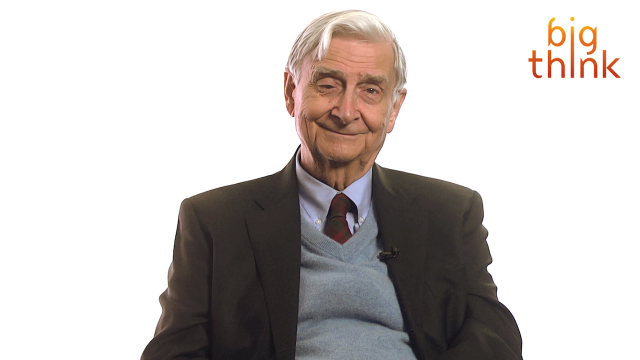Think You’re a Good Multitasker? Stop Lying, Says Dan Harris

ABC News Correspondent Dan Harris explains in today’s featured Big Think video that anyone who boasts about their ability to multitask is a big, fat liar.
Actually, let’s scale that back. Anyone who brags about their multitasking prowess is really lying to themselves. What we think of as multitasking is really, as Harris defines it, “doing many things poorly.” The reason for this lies partly in semantics and partly in neurology:
“Multitasking is a computer derived term. Computers have many processors. We have only one processor. We literally neurologically cannot do more than one thing at a time.”
Harris isn’t just some anti-multitask renegade here. He’s backed up by plenty of sources that all support the idea that multitasking (or what we perceive to be multitasking) is a supremely inefficient, time-wasting boondoggle. Business coach Dave Crenshaw, who wrote a book called The Myth of Multitasking, hosts an online quiz on his website to demonstrate how it slows you down. Another book, the similarly titled The Multitasking Myth, examines multiple NASA studies that identify the dangers of expecting flight crews to perform too many concurrent tasks. The broad consensus is just as Harris says: We’re not wired for multitasking.
Rather than giving in to the urge to do too much at once, Harris instead focuses his energy on doing one thing at a time:
“So if I’m on the phone I turn off my computer monitor and actually listen, radical as it may sound, to the person to whom I’m speaking. If I’m working on a story at work, writing a story, I shut down my email and try to actually focus on what I’m doing. And what I’ve found is that I move through my tasks in a much more rapid way, in a much more effective way and I’m doing a better job.”
Of course, Harris knows firsthand from the media world that there are times when one is forced to juggle multiple items. Multitasking, especially in the 21st century, is inevitable. What’s important is to understand that just because you think you have a handle on several different tasks doesn’t mean you actually do. And when you get a chance to focus solely on one issue, take it. You’re not a good multitasker. None of us are.
Dan Harris is author of the book 10% Happier: How I Tamed the Voice in My Head, Reduced Stress Without Losing My Edge, and Found Self-Help That Actually Works–A True Story





